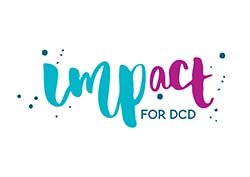Like what you see?
Sign up to receive more free parenting advice.
Thank you for subscribing to our newsletter!
Child Development

Credit: iStock.com/anurakpong
Brian and Sam Elbers’ son was just a little slow to meet his milestones. They initially put it down to constant ear infections and glue ear, so it wasn’t until he started school that concerns were raised.
“Our son had a hearing test and an auditory processing test and it said that he had Auditory Processing Disorder. We felt relieved as parents that we finally had an answer, however the school thought he needed further testing and that led us to frustration once again,” Sam says.
“We weren’t seeing what they were seeing, and the communication and acceptance as parents that there was something wrong with our only child was emotional and difficult to process.”
In Year 1 Sam took her son to a paediatric neuro-psychologist and the diagnosis was clear – Developmental Coordination Disorder (DCD).
DCD (sometimes referred to as dyspraxia) is a common disorder with estimates that it affects around 5-6% of children.1
DCD is a chronic disorder with considerable consequences in daily life. At least 2% of all children with normal intelligence suffer severe consequences in everyday living, and a further 3% have a degree of functional impairment in activities of daily living or school work.
Dr Jacqueline Williams, Senior Lecturer in Motor Control at Victoria University says DCD is more than just clumsiness, it is a motor skill disorder that primarily affects an individual’s ability to learn, perform and adapt motor skills.
This might be confined to fine motor skills, like drawing, writing, buttoning, zipping, cutting, and using cutlery. Alternatively, it might be confined to gross motor skills, such as running, jumping, hopping, bike riding and moving around their environment. More often, it affects both types of skills.
Children affected are often described as appearing clumsy or awkward. They are much slower to learn skills, may seemingly learn a skill one day and forget it the next, cannot perform the skill as well as their peers and have difficulty adapting the skill to a new situation or task.
Children with DCD are typically of average intelligence, but their motor skill difficulties may impact on their performance and progress at school.
Sam says having a diagnosis for her son was a relief, but it also came with problems.
“Having a diagnosis is great however having a disorder that no one has ever heard of leads to frustration,” Sam says.
Getting her son the support he requires has meant moving schools and consistent communication with the school as he moves through grades.
“As a mum I work very closely with the school to make sure he is getting the right support that he needs.
“This year, 2018, he moves into Grade 5, middle school and we have gone through a lot of anxiety to get to the first day of school.
“New systems go into place and new relationships need to be established with teachers and having the right support team around him and around us of a psychologist and occupational therapist so we can best support him on this new chapter.
“Not everyone understands dyspraxia but that’s okay because that’s my job to help create the awareness and support to guide him through.”
A child with DCD needs constant support for daily tasks that others take for granted such as writing at school, buttons, shoe laces, personal hygiene, using utensils and so much more.Sam Elbers
Sam says parents of children with DCD face many challenges.
“DCD is not covered by funding. Psychological needs are supported by Medicare of a maximum of 10 appointments per year, and there is often an out-of-pocket expense for these 10 appointments depending on the psychologist and how much they charge.
“Also, the chronic management plan only supports a 12-month period with six visits to a nominated allied health professional through Medicare. This does not even come close to the support needed for a child with DCD.
“So, the pressure to provide the continual support needed is a hard financial burden, or when you need to stop the sessions due to the lack of money flow, it carries a huge amount of guilt that you can’t offer the support needed to your child. “
Sam says having a child with DCD brings many amazing and rewarding milestones although the emotional needs on the family can be taxing at times.
She says children with DCD can have trouble maintaining organisation at home and school.
“A child with DCD needs constant support for daily tasks that others take for granted such as writing at school, buttons, shoe laces, personal hygiene, using utensils and so much more.
“They are sensitive and have empathy beyond their years and this leads to emotional breakdowns at home and school.
“They are affected by games at lunch that they play with friends such as tiggy and ball games, they are slower and lack the coordination of their peers, which leaves them feeling left out. They then bring home the emotional impact of their day.”
Diagnosing DCD
Dr Williams says in diagnosing DCD, a developmental history should be taken and the child’s motor skills should be assessed using a test that allows a health professional to compare their performance to other children their age.
A paediatric occupational therapist is a good professional to start with, but some are more familiar with DCD than others. Some child neuropsychologists, physiotherapists and paediatricians may also have the background to assess this.
“While an occupational therapist is a great choice for assessing motor skills, it is wise to engage in a team-based approach – for example, a paediatrician can assist in ensuring the clumsiness is not due to another cause that would rule out DCD (e.g. cerebral palsy) and a neuropsychologist can assess for other disorders that often appear alongside DCD, like ADHD,” Dr Williams says.
There is however no known cause for DCD.
“There is increasing evidence that the brains of children with DCD may have developed or function in a different way to individuals without DCD,” Dr Williams says.
“There is also an increasing interest in determining the role of genetics in the disorder. Certain risk factors, such as premature birth, can mean a child is at greater risk of developing DCD.”
Dr Williams says it’s important that parents seek therapy for their children as the majority of children do not outgrow it and therapy is an important tool in developing strategies and skills to help them.
“Children with DCD are at risk of falling into a cycle of avoidance, which reduces their opportunity to practice, resulting in them falling further behind, and further avoiding tasks. Early positive experiences are critical in reducing this,” she says.
“The most effective types of therapy for DCD are skill specific. This means that a therapist will most likely determine, in conjunction with you and your child, which skills are currently the most crucial for your child to improve and will develop a program of therapy from there.
“Left untreated, DCD can have a considerable impact on a child. Children with DCD are often noticed by their peers as being slower or less skilled and quickly become the last one picked for sports and in play.
“Many studies have shown that children with DCD have lower self-esteem, are more anxious, and feel that they are less socially accepted.
“Their avoidance of tasks also often leaves them labelled as lazy or less intelligent, which further impacts their psychological health.
“Their avoidance of physical activity can also have a significant impact on their physical health, with a large body of studies now demonstrating that those in late childhood and early adolescence with DCD are much less aerobically fit, are weaker and more likely to develop obesity in the future.”
Is your child struggling with motor skill development? Some questions that parents might ask themselves include:
- Compared to other children their age, does my child look awkward when performing age-appropriate motor tasks, like running or using cutlery?
- Does it take them much longer to complete these tasks?
- Does it take them much longer to learn these tasks?
- Is my child becoming disheartened by their clumsiness and/or is starting to avoid motor-based play or sport?
- Do they try to avoid self-care tasks that require motor skills, such as dressing themselves, tying shoelaces, using cutlery?
A parent's role
Parents play a vital role in supporting their children.
They can help their children by providing a supportive and positive environment and allowing them as many opportunities as possible for positive movement experiences.
Children with DCD may find fast ball games such as basketball difficult but may find martial arts a positive experience.
“Parents really need to act as the child’s advocate at school and work with teachers to ensure their child can achieve their potential (this will involve lots of educating of their teachers!),” Dr Williams says.
“It may also be useful to help them develop friendships in less physical settings, if they are struggling with being rejected.
“Understanding that children will likely need more time to perform tasks (even as simple as getting dressed or putting shoes on) is vital and will allow them to feel less pressured.”
Determined to make a difference in the lives of families dealing with Developmental Coordination Disorder, Sam and Brian have established Dyspraxia Kids Australia.
“After our son’s diagnosis and no support in Australia we decided to create the only foundation to offer support to families, teachers and allied health professionals and bring awareness to the wider community,” Sam says.
Now in its second year the organisation is holding a national conference in August 2018. The keynote speaker is Dr Jill Zwicker from Canada, a research leader in DCD.
The organisation is also working with the Victorian Government to establish an awareness project for their website and working with the University of Melbourne post graduate Physiotherapy course in their Community Engagement Program.
Dyspraxia Kids Australia has plans to provide support groups and bring together a national network that will offer the much-needed support that families need and deserve.
1 European Academy of Childhood Disability Recommendation, Definition, Diagnosis, Assessment and Intervention of Developmental Coordination Disorder (DCD) Version – July 2011
Join the national DCD survey

A socio-economic study is also launching in conjunction with the University of WA, led by Dr Melissa Licari, looking at the impact of DCD on families.
Dyspraxia Kids has launched a national survey conducted by Australian researchers and allied health professionals, that will be used to collect the vital evidence needed to demonstrate the impact of persistent movement-related difficulties.
Through the survey they hope to increase awareness, initiate action to provide better support services to families, schools and medical centres, and bring about change in the community's approach to DCD.
If you have a child or children aged 5-18 years with Dyspraxia/DCD, the survey has a series of questions to answer, and should take about 30 minutes to complete.
Take the survey: https://uwa.qualtrics.com/jfe/form/SV_bHk8fjaGby5lFbL
Get Advice
Real parents. Real problems. We’re here with a group of leading early learning and parenting professionals to answer your questions.



